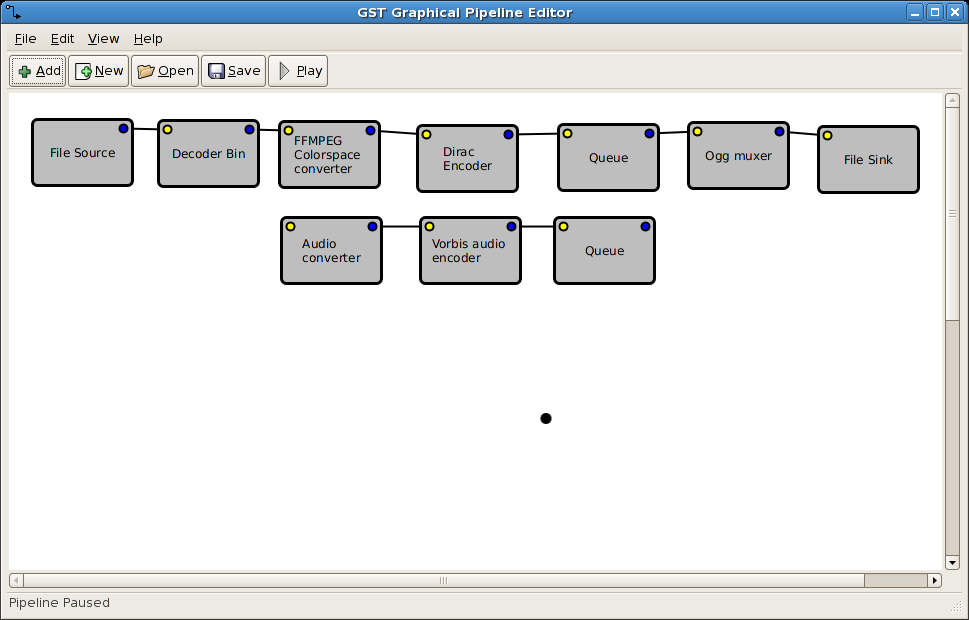Ok, so Wim went on a hacking spree this Sunday and implemented trick-modes with Theora video. This means you can now grab gst-plugins-base CVS and playback Theora in reverse using it. Elisa has some support for this already in subversion, but the best test application is the ‘seek’ example application under tests/examples/seek in gst-plugins-base. Been having some fun playing some of the Ogg Theora movies I have in fast-forward mode, slow motion mode, slow motion reverse and fast rewind mode by modifying the ‘rate’ value in ‘seek’. Vorbis sound is also speeding up/slowing down and playing the sound in reverse perfectly. I tried recording a screencast of it using Istanbul, but my machine is not even close to being fast enoungh to both do the trick mode playback and recording to Ogg at the same time :). A big thanks to Wim. Really looking forward to demonstrating this at future conferences and meetings.
With the support now implemented in a set of open source decoders and demuxers hopefully more people in the community will be able to help out with trick mode enabling the rest of our supported formats. Up to this point only the Fluendo Windows Media plugins supported trick modes, but that doesn’t really help anyone outside Fluendo understand how trick modes are supposed to work in GStreamer, with these changes the secret sauce is available for anyone to study alongside the already public
design document :)
Update on the Texas Instruments OpenMax plugins
Texas Instruments sent in the first version of their OpenMax optimized
GStreamer plugins. Their plugins use the open source OpenMax implementation Bellagio/Omxil which was created by Semiconductor Technologies. ST plans on releasing a set of
GStreamer plugins of their own also as far as I know.
DVD and GStreamer
For a long time now things have been moving slowly in terms of
improving the state of DVD support with GStreamer. Tim Müller
has been working on improving it bit-by-bit over time, but being
only one person and having a lot of other tasks on his plate the
progress have been slow. Well know it seems some help has arrived
in the form of Jason Gerard DeRose who sent in information about his
new dvdread element to the mailing list last Friday and at the same time expressing interest in working also on working on the DVD navigation problemspace. Jason’s original reason for working on
the dvdread element was for his KungFu DVD ripper, but with the DVD stuff fresh in his head is willing to put time into improving also the playback side of things. A big thanks to Jason!
Proprietary 3D drivers
After Mark Shuttleworths invitation for Suse devs to switch to Ubuntu, which today he clarified, a lot of discussion has happened. A frequent topic that has come up in that discussion is the planed use of binary drivers for default in future Ubuntu releases for ATI and NVidia graphics cards. Well the binary graphics driver issue old news I say, I thought about that over 9 months ago ;)
NVidia/Fedora Quake crash
I would like to thank those who provided some feedback on my crash problem. It turned out to be a known bug in the latest released drivers and upgrading to the latest beta solved it. Thanks to the AC who pointed me in this direction.

